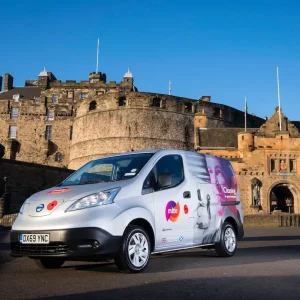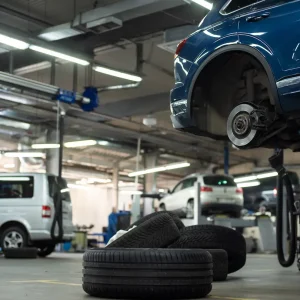It’s fair to say that no conversation about a vehicle fleet can be had without the complex subject of residual values cropping up. After all, how much value an asset will hold onto throughout its use-able life on fleet – whether a car, van or large commercial vehicle – ultimately impacts on the bottom line of the business.
This area, though, is about to get even more complicated as the industry transitions to an electric future.
With a traditional ICE vehicle, RVs are dependent on many factors, from mileage to overall condition to service history. But an engine – the most expensive component – doesn’t really come into the equation. Thanks to modern engineering and reliability, as long as the vehicle has been maintained regularly and correctly, it’s assumed that the engine is fine. It may not be of course, but unless there is blue smoke pouring out of the exhaust, it doesn’t come into the RV calculation.
However, with an EV, the value of the overall asset is now intrinsically linked to one vital, and very complicated, component: the battery. EVs come with robust warranties which means that should a fleet be unfortunate and require a replacement, this will more than likely be covered by the manufacturer.
But there are several issues to consider. For the owner of the asset, and here I am talking about the leasing company or a large fleet which buys its vehicles outright and operates them for longer than a three-year standard contract (e.g., a utilities company), it is vital to understand the actual condition of the battery, reported by the vehicle as battery ‘state of health’.
In very simplest terms, state of health is the ability the battery has to hold energy. A reduction in energy storage capability means the vehicle’s driving range will be reduced. And this can vary wildly between two vehicles that, on the surface at least, may look identical. Why does it vary? Because of the way those vehicles have been used during their life.
What degrades the condition of the battery? Repeated fast charging, repeated charging to 100%, letting the battery completely discharge on a regular basis and extremes of temperature. On the flipside, it’s possible to look after the health of a battery by charging it regularly at low kW rates (for instance a home 7kW charger overnight) and keeping it operating within the 20%-80% range, and observing the recommendations from the vehicle supplier as to optimum driving behaviour All batteries degrade with time and usage, but if a battery is mis-treated, it can lose capacity faster than expected. Bad for a fleet – and bad for RVs. The good news is that it is possible to understand more about what is happening inside a battery, to manage and right the wrongs of any poor charging practices.
Increasingly, the industry is waking up to this. When Renault-Nissan announced its BEV strategy earlier this year, it also revealed new tech that would give data on exact battery health to consumers, directly helping RV setting. At Silver Power Systems, we’ve developed a system that does a very similar job, by making visible the battery usage history and health indicators. Hopefully more OEMs will be more transparent in this area in years to come.
Life will always be complicated, but new technology can bring fresh – and vital – understanding, helping asset owners successfully navigate the EV transition and optimise their fleets, no matter the vehicle.
Liam Mifsud is programme manager at Silver Power Systems





